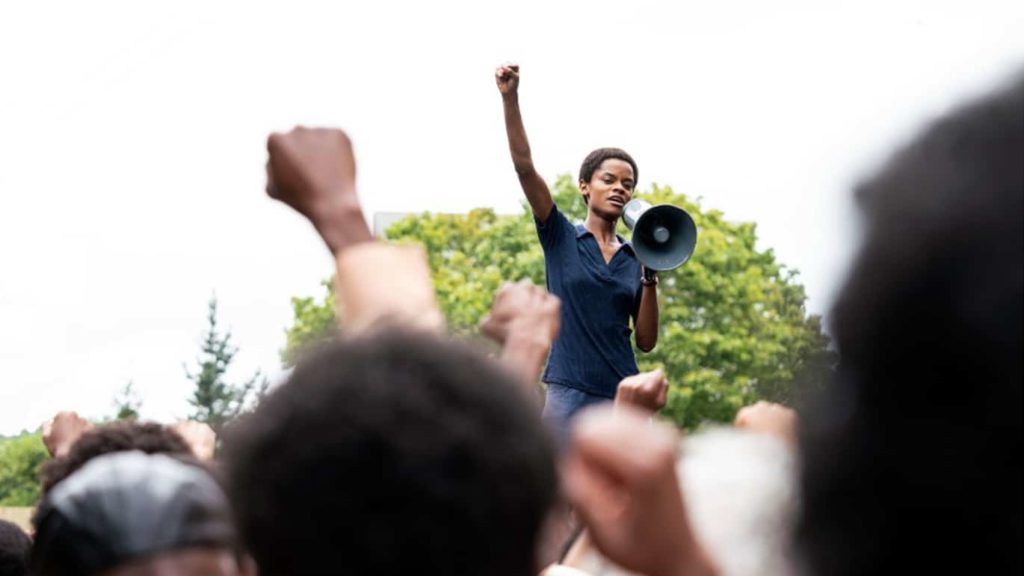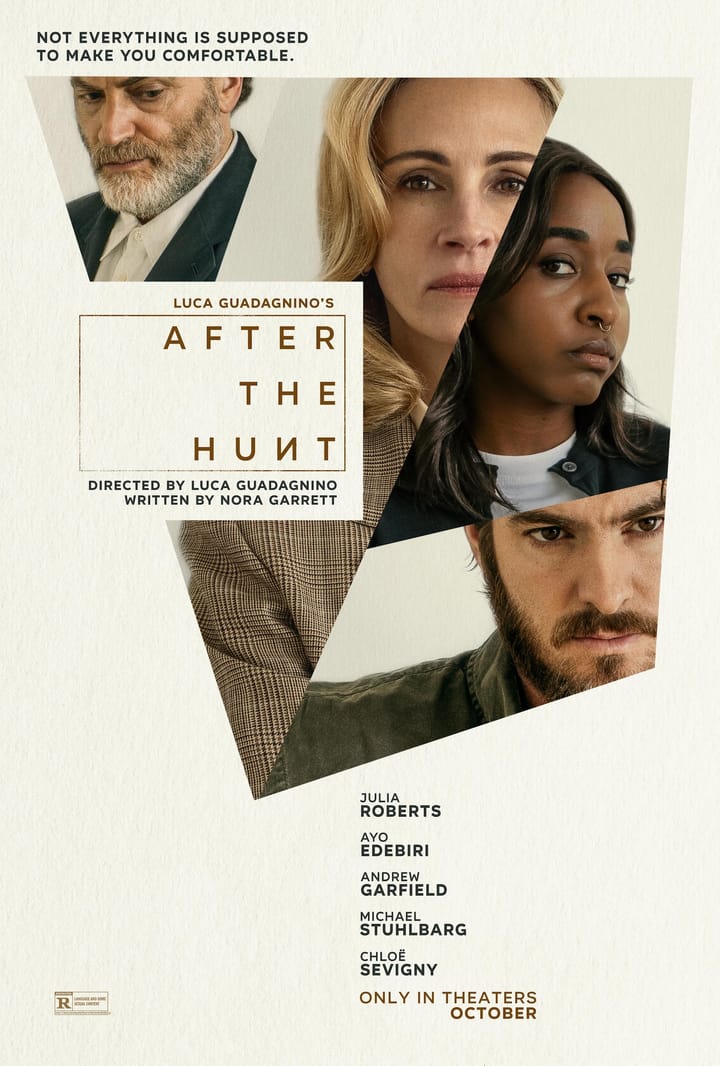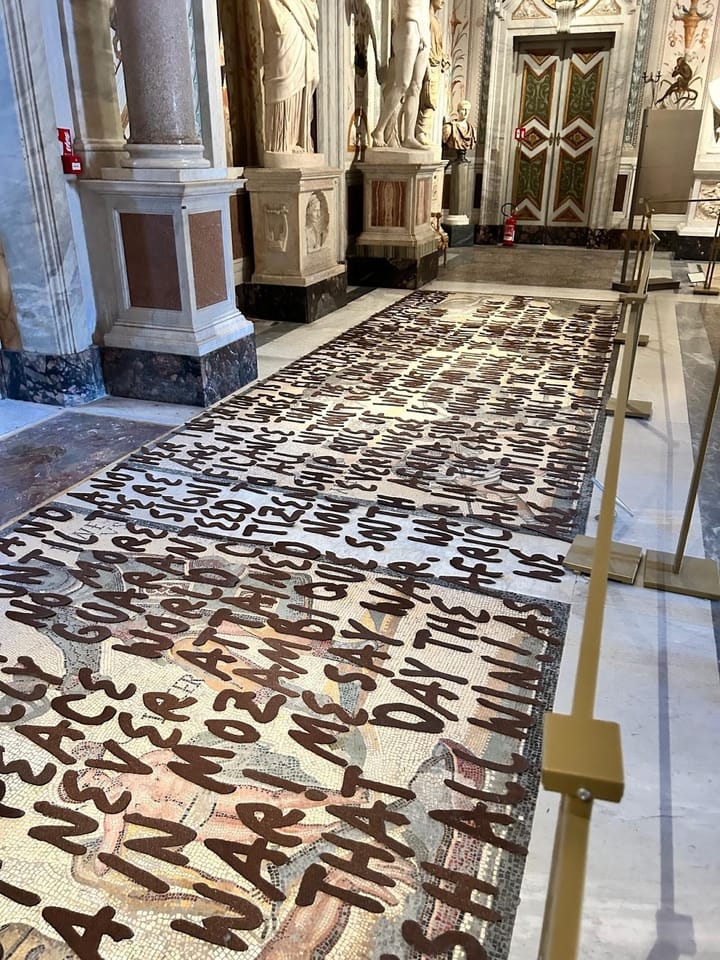Steve McQueen’s Lovers Rock episode
Steve McQueen’s Small Axe has been widely acclaimed by both critics and viewers. The five-part film series takes its name from an African proverb popularised by a Bob Marley and the Wailers song: “If you are the big tree, we are the small axe”. The film series tells the stories of London’s West Indian community between the late 60s and early 80s and offers an imaginative portrait of Blackness in Britain, framed outside the marginal or pathological.
Several viewers point out how the series created one of the first positive representations of black Britons on television and became an excellent example of Black creativity in an industry where white people remain the gatekeepers. Along with the emotion for seeing a forgotten/erased history of the first time, the series created a space for both imagination and identification, enabling a kind of “It could be me” affect, essential to the feeling of belonging to a place, especially when the institutional racism of British society systematically denied this desire to belong.
The wish to belong to a place is captured perfectly by Linton Kwesi Johnson’s poem “It Dread inna Inglan”, an omnipresent character throughout the series, who appears in voice-over in Alex Wheatle’s episode reading the poem “New Cross Massakah”, about the 1981 New Cross Fire, where 13 young black people were killed in a suspected arson attack, later ignored by the British authorities. In the late 1970s and early 1980s, Linton Kwesi Johnson gave voice and poetic form to the Afro-Caribbean diaspora to fight against racism. The poem “It Dread inna Inglan” expresses, explicitly, the resolve of African, Asian, and Caribbean communities to “Stan firm inna Inglan”, asserting their determination to stay in the country and effectively become “Black British”.
Lover’s Rock episode, set in a blues party, considered a safe refuge from Britain’s racist clubbing scene, stood out for its originality and audacity. It is fascinating how the episode produces an imagined history and activates a work of memory, where the personal and affective dimension plays an important role. The episode is a “non-plot” imagined description of a blues party, mediated essentially by music, not by words, the traditional way of “making sense”, thus displacing the hierarchy between words and sounds. Here, music is not a mere artifice to embellish a scene, portraying a character, or present the (good) taste, and music is the guiding thread of the narrative. The whole episode is a sensuous appreciation of the work that music does and how it can be a collective experience. Among the words, dances and gestures of the characters that evolve on the dance floor, there is the music of Janet Kay, “Silly Games”; Gregory Isaac’s, “Mr Brown”; or Carl Douglas, “Kung Fu Fighting”.
The formal gesture, or “the content of the form”, as Hayden White would put it, of Lover’s Rock episode, is rather audacious. It is not common to film people dancing at a party outside a documentary film, particularly when the dance scenes have an unusual duration. Instead of filming the life and experiences of black Britons, damaged by prejudicial attitudes and daily discriminatory practices, between the opposite poles of oppression and resistance, Lover’s Rock episode invents an imaginary space, close to an “interstitial perspective”, that involves affects, experiences, feelings, but also tensions. The blues party is not an idealized place, outside power relations, which must fully fulfil escapism’s promises.
Martha (played by Amarah-Jae St Aubyn), the main character, a young black Christian girl, who escapes through her window to experience the secular world of a blues party, encounters affection and betrayal and abandonment. Tensions take place openly on the dance floor, where scenes of togetherness, intimacy, courtship, rejection, and violence are dramatized. Steve McQueen’s even has the subtlety to document the sexual division of the dance floor, highlighting how music genres condition it.
While Janet Kay’s song “Silly Games”, a perfect example of lover’s rock music genre[1], illustrates the joy of communion on the dance floor, where men and women dance together to sing the song in a cappella, in a mesmerizing cinematic moment; The Revolutionaries, “Kunta Kinte Dub” is a “wilding” experience of men. This singular cathartic moment, which has similarities to contemporary “mosh pits”, is essentially masculine and dominated by physicality.
The music genres themselves moreover perform the gender contrast. Characterized by smooth melodic ballads, performed mainly by young women, but produced nearly by men, and new forms of dance, which invented a new space for erotism, lovers’ rock became known as the romantic sub-genre reggae[2]. Instead of raising awareness, or being committed to authenticity, lovers’ rock carried an element of pop that was very different from roots reggae or dub and Rastafarian lifestyle.
Lovers’ rock contributed decisively to change the perception of
black music within the British media. Despite its transnational origins, the genre is seen as distinctly black British. In a way, lovers’ rock was the first post-colonial music genre to emerge in the UK, followed by other renowned genres, such as Brit Funk, Acid
House, Jungle, UK garage, Dubstep, Grime, UK drill.
As Bob Marley famously said in “Trenchtown rock”: “one good thing about music, when it hits you, you feel no pain”. Even serving just entertainment purposes and devoid of clear political messages, which immediately “disqualifies” a music genre, lovers’ rock created a kind of “feel no pain” politics, composed by lush love songs and romantic yearnings, as a suitable metaphor for what was going on in everyday life—an interlude of joy between the hardship, racial tensions, riots, and oppression.
One Good Thing About Music
Sources
[1] In July 1979, Janet Kay performed her hit single “Silly Games” on Top of the Pops; she was the first British female reggae singer to top the UK charts. Soul Jazz Records, a record label based in London, has been releasing a series of essential compilations in different music styles. The label also provides a valuable, comprehensive, and illuminating context for each release. In 2012, Soul Jazz Records released the compilation “Harmony, Melody & Style. Lovers Rock In The UK 1975-1992”, which focuses specifically on British lovers’ rock genre. https://soundsoftheuniverse.com/sjr/product/harmony-melody-style-lovers-rock-in-the-uk-1975-1992.
[2] Soft, smooth, and romantic love songs have been a consistent feature of music traditions in Jamaica. The diasporic roots of lovers’ rock can also be found in the love songs of Alton Ellis, John Holt, Ken Boothe, Marcia Griffiths, Dennis Brown, Gregory Isaacs, among others. For a detailed analysis of lovers’ rock in Britain and its gendered politics, see Lisa Amanda Palmer (2014). “Men Cry Too: Black Masculinities and the Feminization of Lovers Rock in the UK”. In Jon Stratton; Nabeel Zuberi (eds.). Black popular music in Britain since 1945. Burlington, VT: Ashgate, pp. 115-129.
Marcos Cardão holds a PhD in Contemporary History from the Instituto Universitário de Lisboa. Marcos is an academic at University of Lisbon. He is currently working on a research project titled: Reconfigurações pós-coloniais. História, Nação e Cultura Popular. His most recent book is: Fado Tropical. Luso-tropicalismo na cultura de massas (1960-1974).



